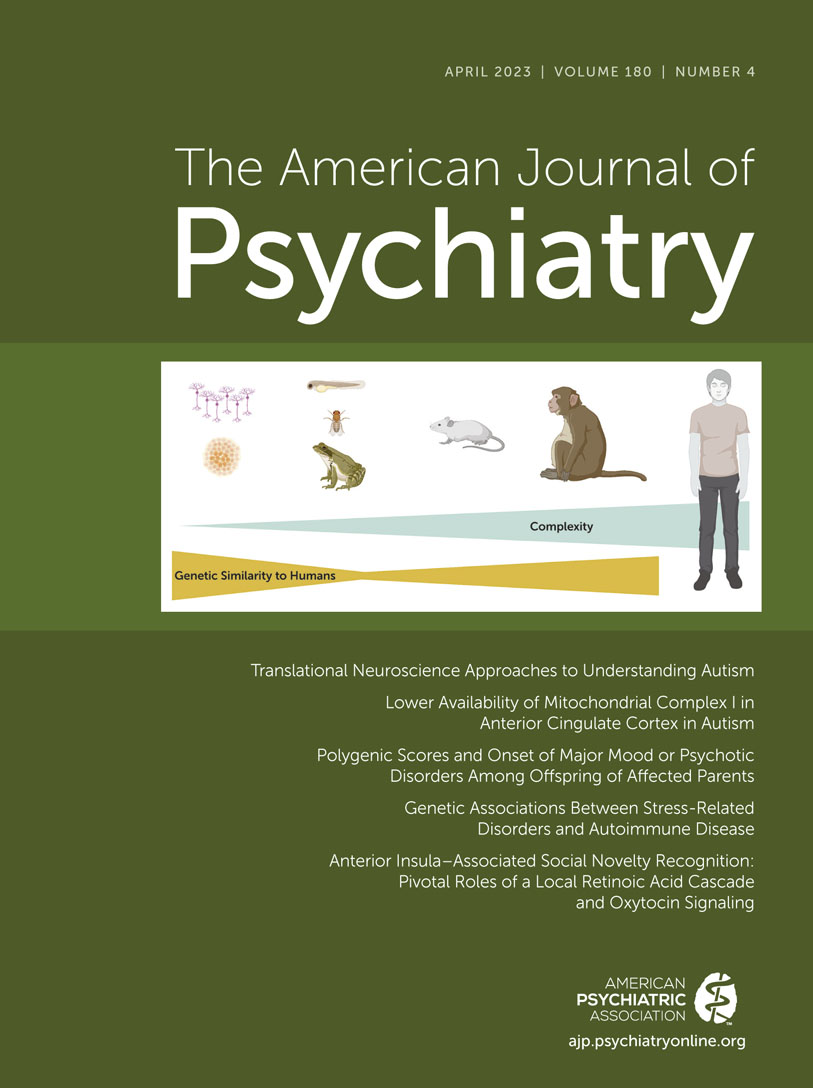Acute Stress, Traumatic Brain Injury, and Dissociation: Response to Simeon
We thank Dr. Simeon for her letter regarding our recently published article, “Persistent Dissociation and its Neural Correlates in Predicting Outcomes after Trauma Exposure” (1). She raises some important points that we are happy to speak to.Dr. Simeon is correct, we did not include acute stress disorder (ASD) in our analyses. She raises an intriguing point that requiring three out of five dissociation symptoms for ASD may have reduced ASD’s predictive power for PTSD in prior research—resulting in contradictory findings to our own demonstration that persistent derealization after trauma did predict PTSD symptoms and diagnosis. This highlights the importance of conducting dimensional analyses like ours (in additional to diagnostic-based analyses) that are not limited by somewhat arbitrary symptom number cutoffs built into diagnostic criteria. In this same line of thinking, we think it is also essential to examine these questions with both someone’s self-report narrative and biological correlates to uncover connections that might have otherwise remained unseen.
Regarding the scope of dissociation covered in our analyses, we respectfully disagree that our study encompassed both derealization and depersonalization. While the emotional reactivity task involved viewing human faces with fearful expressions, we only correlated brain activity with derealization self-report scores. We did not quantify depersonalization responses. However, we do agree that derealization and depersonalization symptoms co-occur for many individuals. Likely, many participants were also experiencing depersonalization symptoms which may be reflected in the brain patterns we observed—but we unfortunately did not measure this construct.
Regarding traumatic brain injury (TBI) and the overlap between these symptoms and derealization, we agree that we missed an opportunity to disentangle the impact of mild TBI symptoms from persistent psychogenic derealization. However, there is a new AURORA Study collaboration with the Department of Defense aimed at differentiating TBI and other posttraumatic symptoms by leveraging a blood test that can more accurately identify brain injury—we thank Dr. Simeon for a novel direction to probe in this data set.
We agree that the mostly noninterpersonal nature of traumas in this study likely lessened the predictive power of childhood maltreatment, and as stated in our limitations section, additionally, likely restricted the range of derealization seen in our sample. Specifically, the prevalence and severity of derealization symptoms might have been higher if our sample included more interpersonal traumas.
Finally, Dr. Simeon provided another fruitful direction for future research regarding capturing the trajectory of derealization from 2 weeks to 3 months and its predictive power for the dissociative subtype of PTSD versus nondissociative PTSD. The AURORA study did not include a measure to assess for the dissociative subtype of PTSD. This large multisite study prioritized capturing a wide breadth of posttraumatic sequelae, which limited the depth of assessment into any one symptom. Thus, this precluded us from completing such an analysis.
We thank Dr. Simeon for the excellent points raised and directions for future research. Our hope is that continued research into the understudied, often misunderstood experience of trauma-related dissociation will help connect individuals with timely and effective treatment.
1. : Persistent dissociation and its neural correlates in predicting outcomes after trauma exposure . Am J Psychiatry 2022 ; 179 : 661 – 672 Link, Google Scholar



